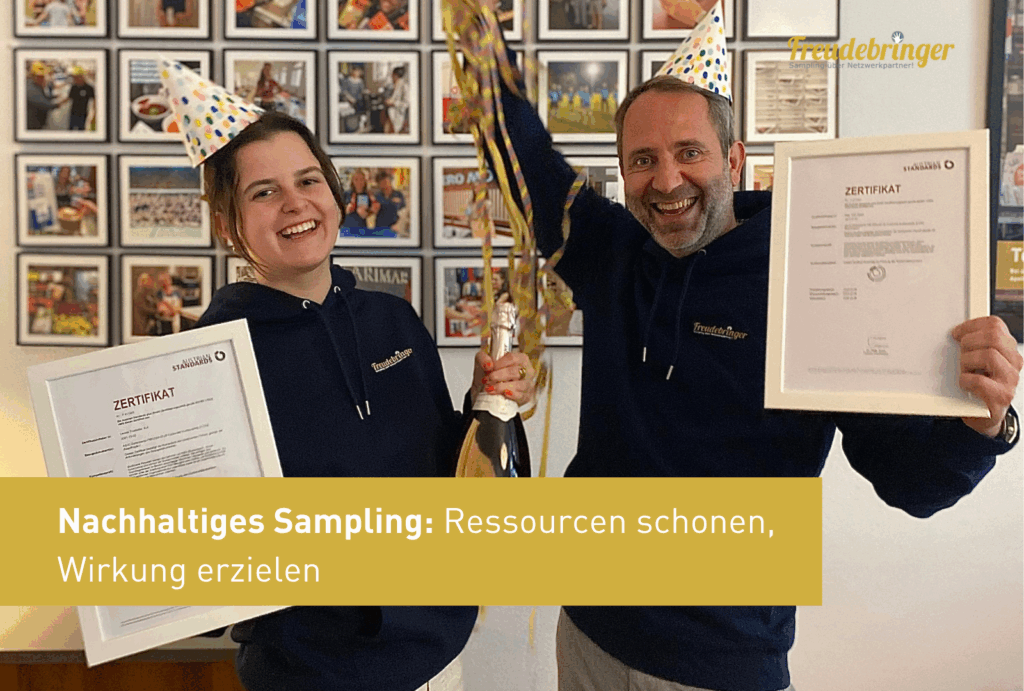Why sustainability is important in sampling
Companies are under increasing pressure to design marketing measures that are not only effective but also resource-efficient. Sustainable sampling offers a practical solution here: instead of producing new samples, existing surpluses, seasonal residual quantities or products shortly before expiry are put to good use.
This creates valuable brand experiences that also help to reduce food and product waste.
Certification creates trust: ESG according to Austrian Standards
Freudebringer is ESG-certified according to Austrian Standards. This certification covers environmental, social and corporate governance aspects and helps to comply with current EU requirements for sustainable business practices.
For brands, this means that they can rely on a sampling solution that is verifiably tested and based on transparent processes. In this way, sustainability is not only communicated, but also verifiably implemented.
👉 Read more about ESG certification on LinkedIn
How sustainable sampling works
The basic idea: recycling instead of destruction. Products that would otherwise be disposed of are given new value through targeted sampling campaigns. Typical examples are
- Overproduction in the food and cosmetics industry
- Seasonal residual stocks that can no longer be placed on the market after a short time
- Articles shortly before expiry that are still in perfect condition
Added value for brands and consumers
Sustainable sampling combines two levels:
- Ecological: products are used sensibly instead of being disposed of.
- Economical: Budgets are spared as no additional production costs are incurred.
Studies and practical experience show that the emotional product experience is retained, regardless of whether it is a regularly produced sample or a sustainable second use.
Referral marketing as an amplifier
Sustainable sampling is particularly effective when combined with referral marketing. People who try out a product in a suitable environment – e.g. at a spa, hairdresser or gym – are more likely to talk about it and pass on the experience.
Organic reach is created through trust, not mass.
Conclusion: sustainability with a measurable effect
Sustainable sampling shows that resource-conserving measures and effective marketing are not a contradiction in terms. With certified processes, a clear focus on relevant touchpoints and a personal handover, brands can take responsibility and reach their target group effectively at the same time.
Further links:
Marketing Club Austria – Further training in ESG competence



 Deutsch
Deutsch

